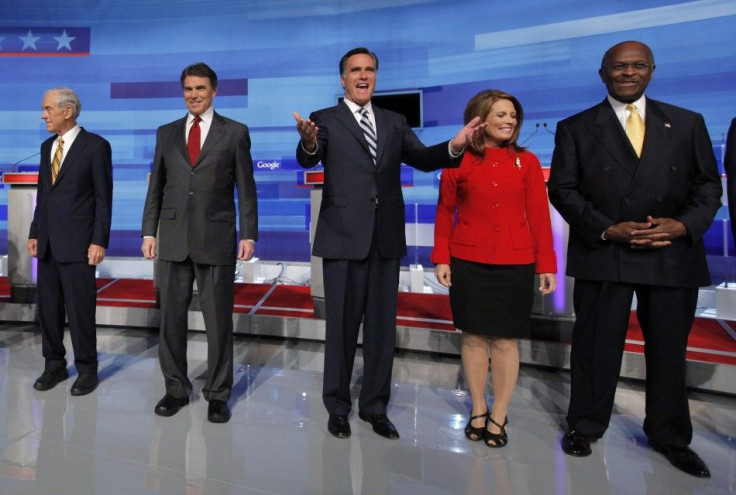Missouri Primary: One State Caves, But Jockeying Still Hurts Republican Voters
ANALYSIS

Missouri Republicans have backed down from their threats to hold their presidential primary in February, electing to hold a caucus on March 17 instead -- but in other states, the mad rush for early primaries continues, to the detriment of voters.
Under Republican National Committee rules, only Iowa, New Hampshire, Nevada and South Carolina are allowed to hold their primaries or caucuses before March 6. If a state breaks that rule, it risks losing half of its delegates to the Republican National Convention, where the party will officially name its nominee.
Missouri normally chooses its delegates to the convention via a primary election, which works much the same way as a general election. A caucus is more time-consuming and requires more active voter participation. Citizens give speeches on behalf of candidates and their votes are informally tallied, but the delegates are officially chosen later, at a statewide convention.
Because it takes longer to organize a caucus than it does to organize a primary, Missouri decided to postpone the date, backing away from a confrontation with the Republican National Committee. Half of the state's delegates will be chosen on April 21 and the other half on June 2, according to The Associated Press.
But even though Missouri has pushed its date back, several other states still plan to flout the RNC rules. Florida said it would schedule its primary for Jan. 31, with the intention of being the fifth state to vote -- just after the four traditional early states. The speaker of the Florida House warned that if any state other than those four tried to jump ahead, Florida would hold its primary even earlier.
Meanwhile, other states are jockeying to be as close behind Florida as possible. Colorado's primary is now scheduled for Feb. 7 -- the day after the Iowa caucuses, although those are sure to be shifted forward in response to Florida's move -- and Arizona's primary is scheduled for Feb. 28.
Iowa, New Hampshire, Nevada and South Carolina will almost certainly move their primaries and caucuses up to January in order to stay ahead of the pack.
Our four states are committed to protecting the integrity of the 2012 nominating process, and we refuse to let rogue states dictate the calendar, Chad Connelly, chairman of the South Carolina Republican Party, said in a statement on behalf of the Republican leaders of all four early states. Elections held just after New Year hurt voters and candidates by short-circuiting the nominating process. Republicans deserve the chance to get to know every candidate. We must choose the right person to defeat Barack Obama.
The order of primaries and caucuses is so important because the states that vote first have a disproportionate influence on the nominating process. In the first few contests, frontrunners tend either to build their leads and become uncatchable, or to fall off the map entirely. Meanwhile, dark-horse candidates have their last real chance to break into the first tier.
The first four states don't decide the nomination alone, but they do very much set the tone for the race and influence the primary results in the states that come after them. Every state knows that if they could manage to get to the front of the calendar, the candidates would have to spend more money there and pander to local constituencies.
It is a powerful position to have, but that power is diminished when so many states try to cram themselves into the first few weeks of the primary season. All that does is condense the process so that the nominee is determined months before the convention, and that, like Connelly said, deprives Republicans of the opportunity to fully explore their options.
© Copyright IBTimes 2024. All rights reserved.





















